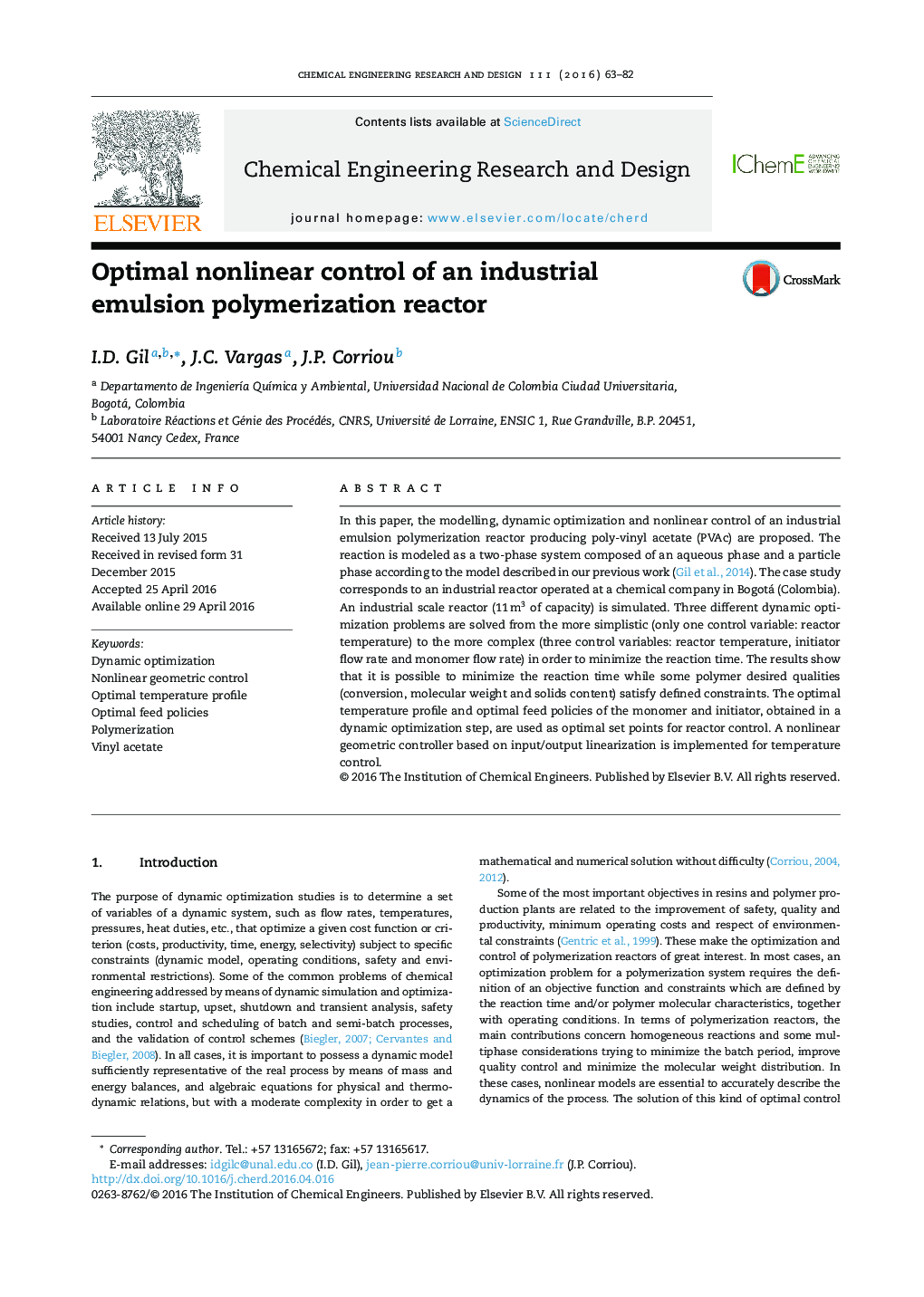| Article ID | Journal | Published Year | Pages | File Type |
|---|---|---|---|---|
| 7006438 | Chemical Engineering Research and Design | 2016 | 20 Pages |
Abstract
In this paper, the modelling, dynamic optimization and nonlinear control of an industrial emulsion polymerization reactor producing poly-vinyl acetate (PVAc) are proposed. The reaction is modeled as a two-phase system composed of an aqueous phase and a particle phase according to the model described in our previous work (Gil et al., 2014). The case study corresponds to an industrial reactor operated at a chemical company in Bogotá (Colombia). An industrial scale reactor (11Â m3 of capacity) is simulated. Three different dynamic optimization problems are solved from the more simplistic (only one control variable: reactor temperature) to the more complex (three control variables: reactor temperature, initiator flow rate and monomer flow rate) in order to minimize the reaction time. The results show that it is possible to minimize the reaction time while some polymer desired qualities (conversion, molecular weight and solids content) satisfy defined constraints. The optimal temperature profile and optimal feed policies of the monomer and initiator, obtained in a dynamic optimization step, are used as optimal set points for reactor control. A nonlinear geometric controller based on input/output linearization is implemented for temperature control.
Related Topics
Physical Sciences and Engineering
Chemical Engineering
Filtration and Separation
Authors
I.D. Gil, J.C. Vargas, J.P. Corriou,
